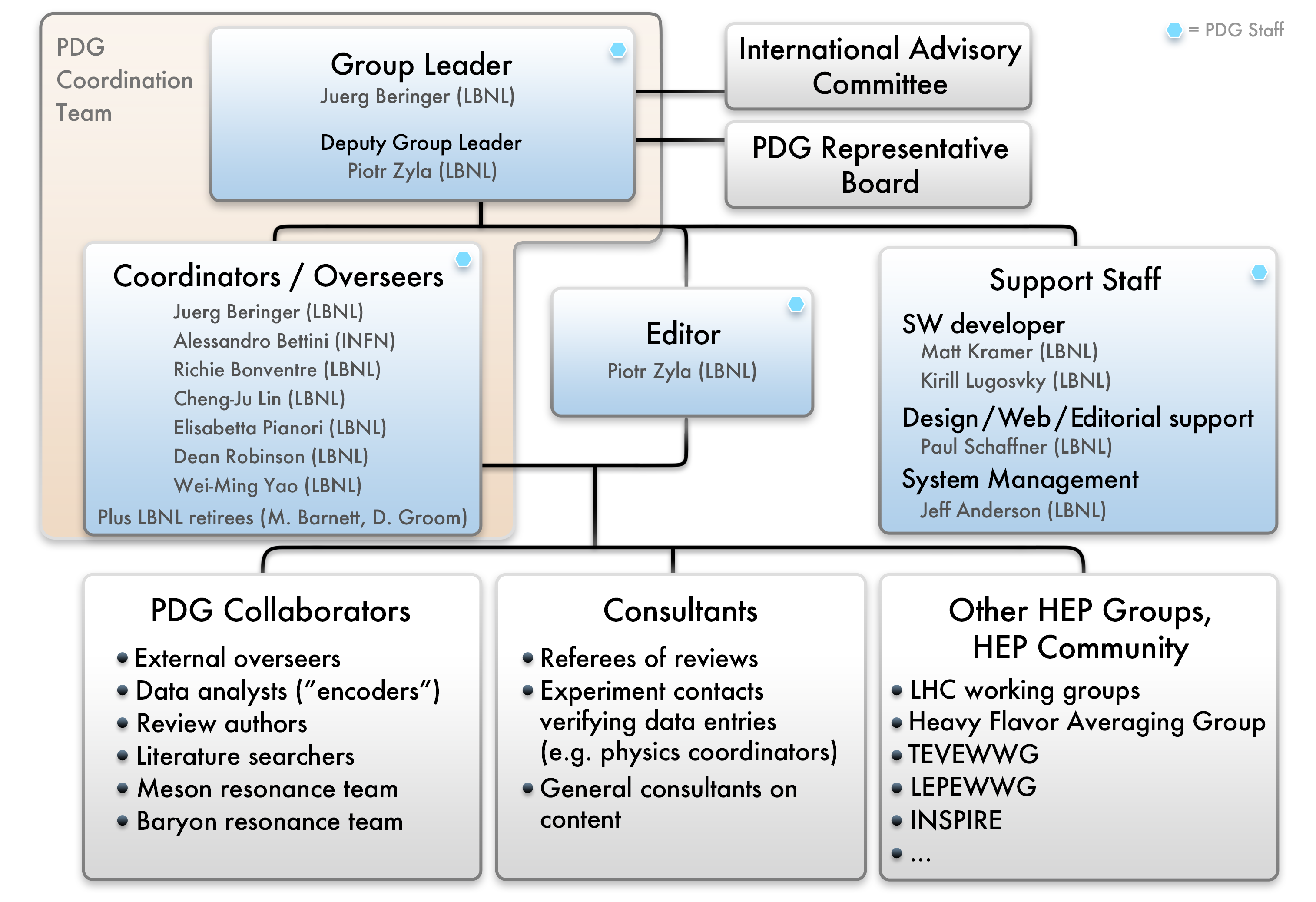The Particle Data Group (PDG) is an international collaboration that provides a comprehensive summary of Particle Physics and related areas of Cosmology: the Review of Particle Physics.
The PDG collaboration currently (as of the 2024 edition) has 240 authors and 4 technical associates from 173 institutions in 25 countries.
It is led by a coordination team based mostly at Lawrence Berkeley National Laboratory (LBNL),
which has served as PDG's headquarters since inception.
Since 2017 the coordination team also includes a person supported by INFN.
The organization of the PDG collaboration is shown in the figure below.
The Review of Particle Physics is updated yearly and published every two years in a HEP journal.
It includes a compilation and evaluation of measurements of the properties of known elementary particles and summarizes searches for hypothetical new particles.
For the 2024 edition, 2,717 new measurements from 869 papers were added, in addition to 46,838 measurements from 12,909 papers that first appeared in previous editions.
120 individual review articles discuss topics such as Higgs bosons, supersymmetry, Big Bang nucleosynthesis, probability, statistics, accelerators and detectors.
In addition to this online version and the journal publication (about 2,600 pages), the Review of Particle Physics is available as
- a printed PDG Book (about 1,300 pages, the Particle Listings are no longer printed),
- a Booklet (300 pages, also available as a mobile version),
- PDF files on the PDG web site,
- interactively from pdgLive,
- in machine-readable format via the PDG API.
